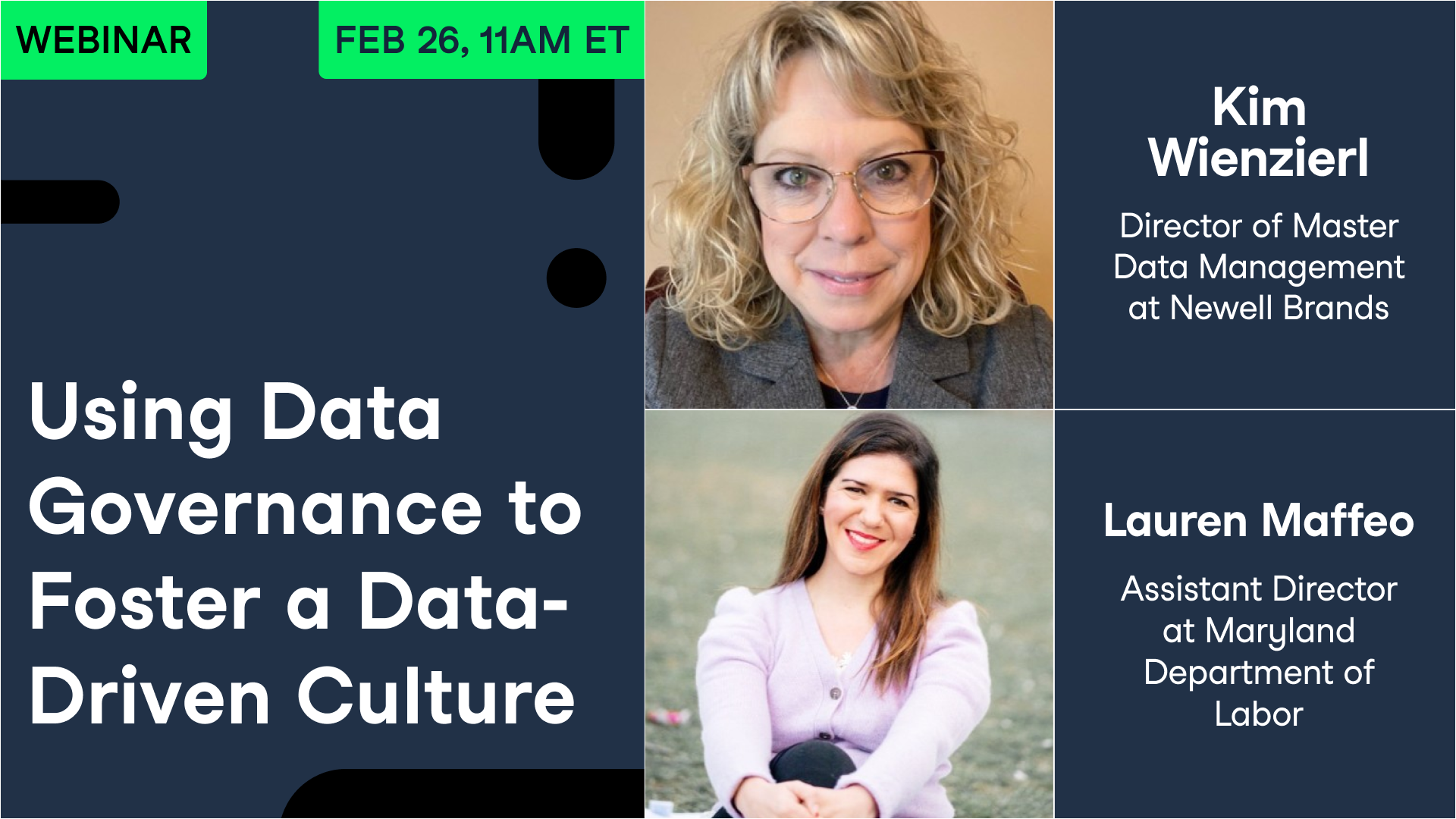Speakers
Training 2 or more people?
Get your team access to the full DataCamp library, with centralized reporting, assignments, projects and moreUsing Data Governance to Foster a Data-Driven Culture
February 2025
Related
webinar
Crafting a Lean and Effective Data Governance Strategy
In this webinar, we will guide you through the nuances of developing a robust data governance strategy that drives value for your organization.webinar
From Data Governance to Data Discoverability: Building Trust in Data Within Your Organization
In this session, industry leaders share strategies for improving data quality, fostering a culture of trust around data, and balancing robust governance with the need for accessible, high-quality data.webinar
Unpacking the Fun in Data Governance: The Key to Scaling Data Quality
In this webinar, Tiankai Feng, Head of Data Strategy & Data Governance at Thoughtworks Europe, will walk you through the objectives, concepts, and best practices of setting up effective data governance programs.webinar
How Data Governance Enables Scalable Data Science
Learn how data governance enables data democratization and higher trust in datawebinar
Unpacking the Fun in Data Governance: The Key to Scaling Data Quality
In this webinar, Tiankai Feng, Head of Data Strategy & Data Governance at Thoughtworks Europe, will walk you through the objectives, concepts, and best practices of setting up effective data governance programs.webinar

